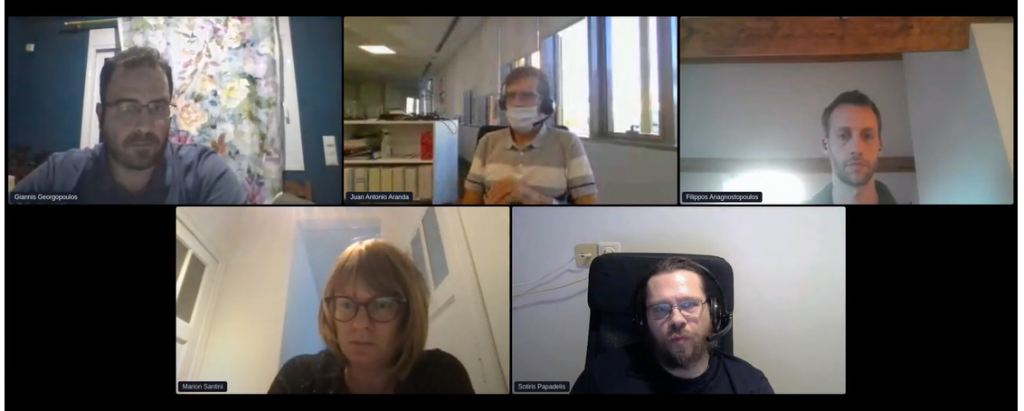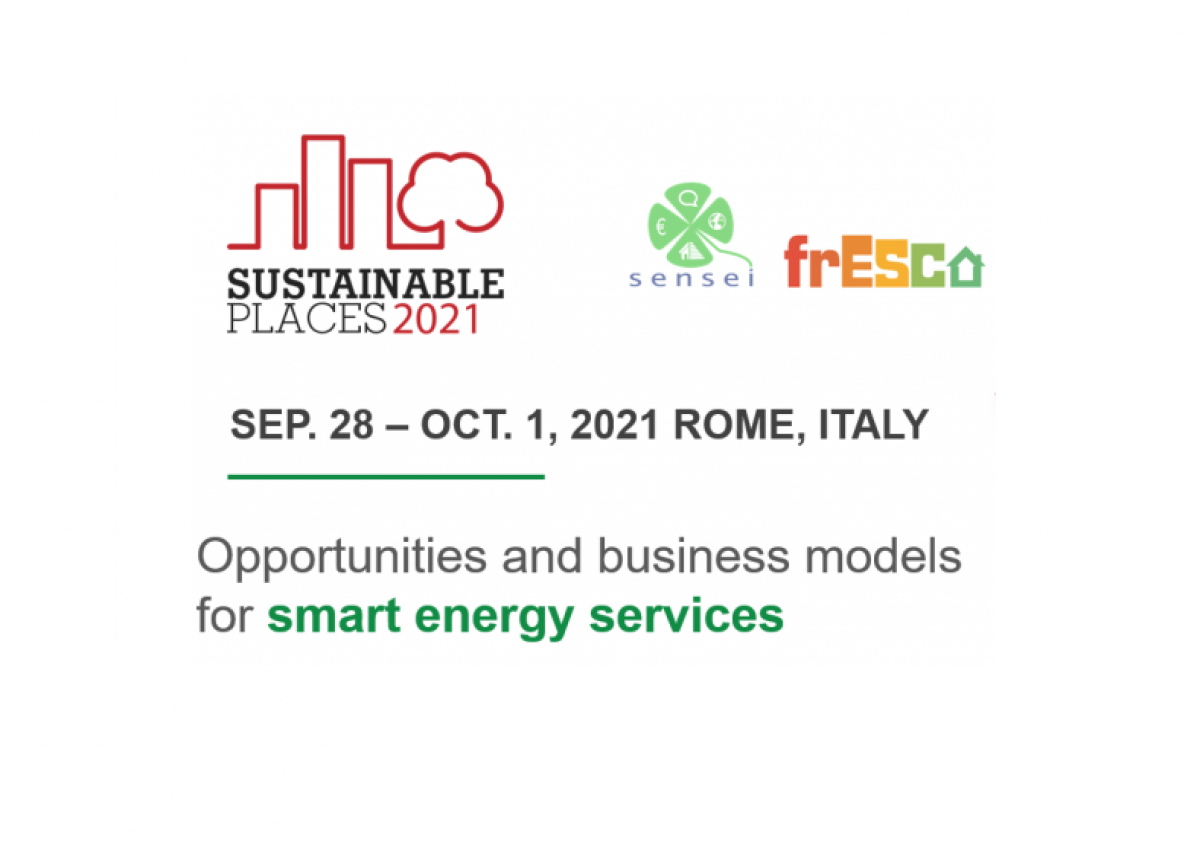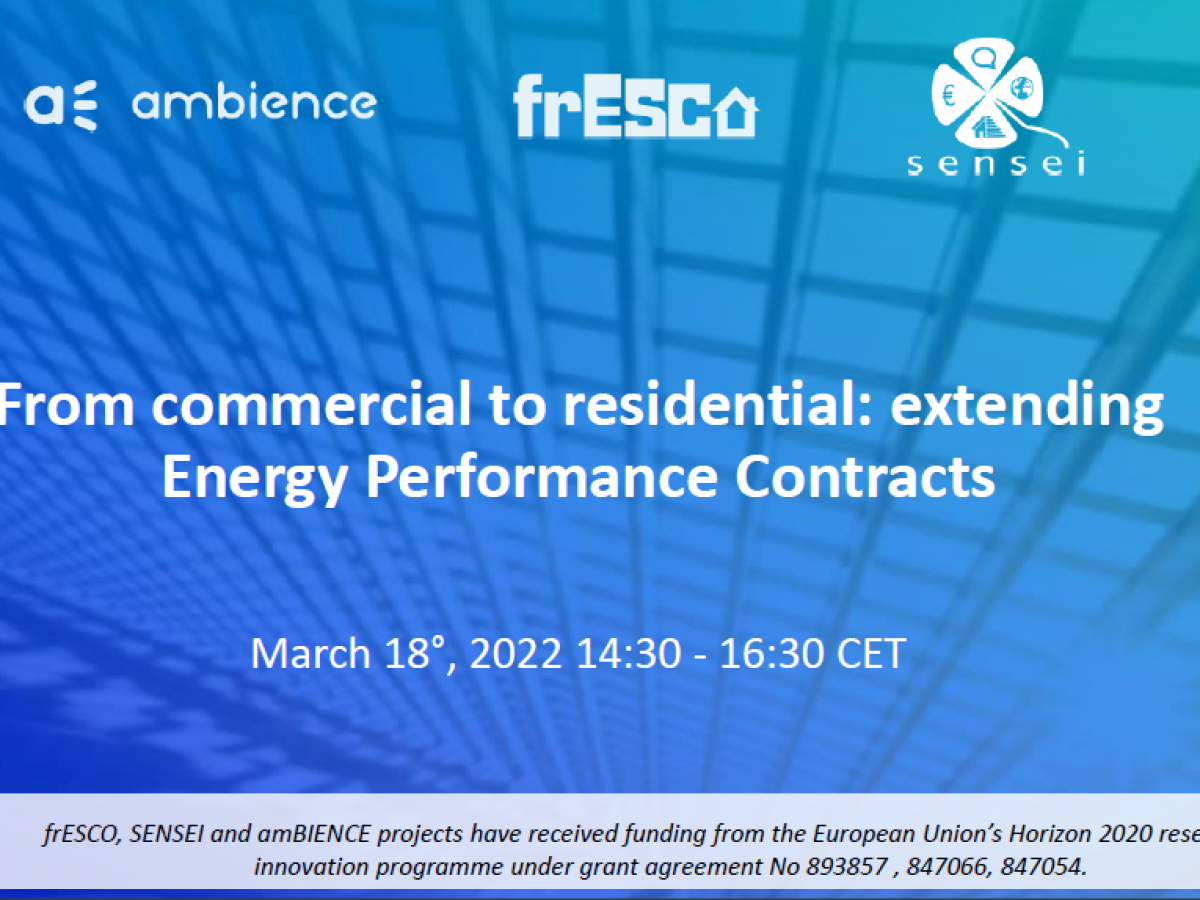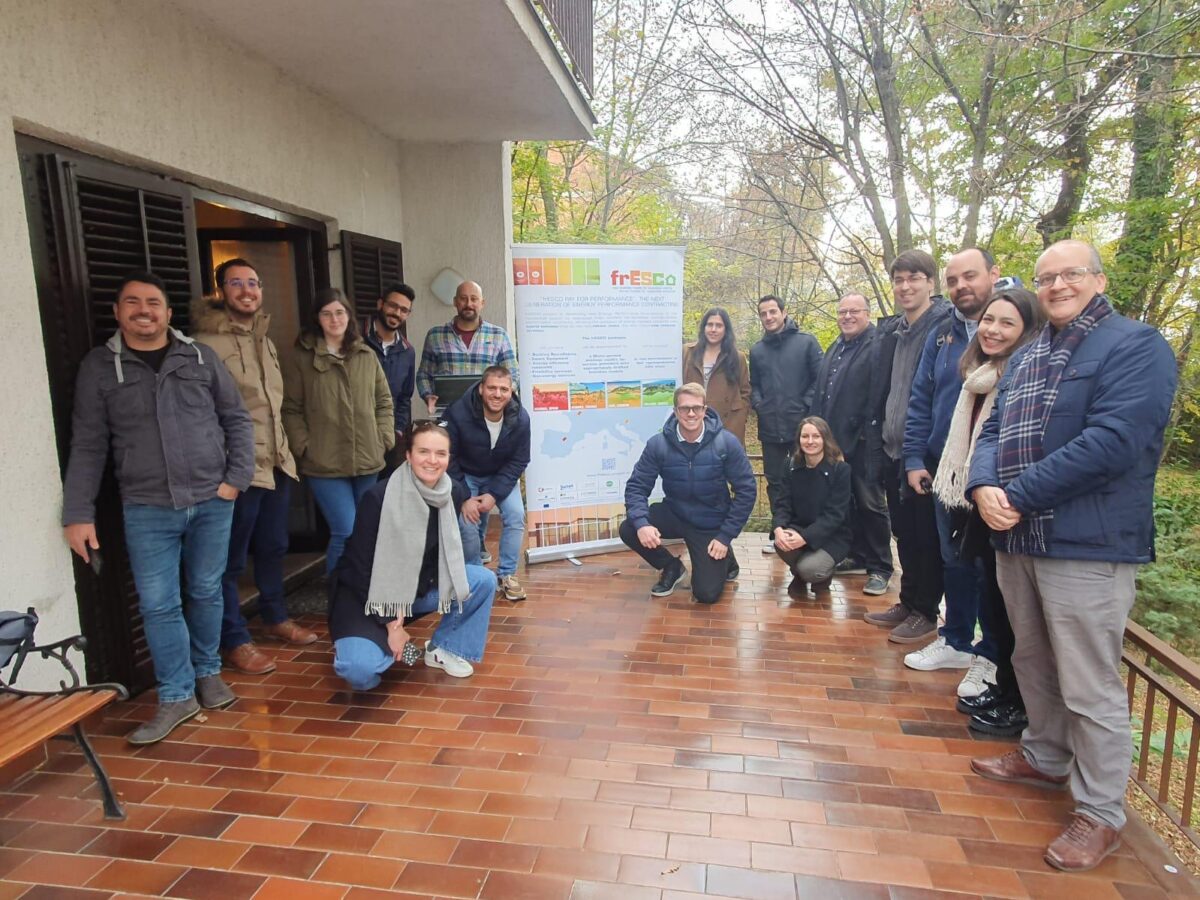frESCO and SENSEI for Sustainable Places 2021 – Workshop
After a fruitful collaboration in other activities, frESCO and one of its sister projects SENSEI participated together in the 9th edition of Sustainable Places in a joint workshop to explore the opportunities for smart energy services leading to new business models that can unlock the potential of residential consumers and domestic building stock to contribute to future energy efficiency and flexibility.
The workshop invited stakeholders to an interactive discussion on Pay-for-Performance schemes based on presentations about the latest developments in Europe.
The workshop started with a review of P4P (Pay-for-Performance) schemes put in place by regulators and utilities, mostly in North America, to promote energy efficiency and reduce the costs of the energy transition. The international experience with P4P was presented by Marion Santini from RAP’s Europe team.
Sotiris Papadelis from Hebes Intelligence presented the value of energy efficiency as an energy resource if it is enabled to participate in forward capacity and ramping reserve markets. This examination is creating realistic market scenarios based on quantitative modelling and the use of historical data about indicative capacity markets.
frESCO’s coordinator Juan Aranda from CIRCE showcased practical applications by presenting innovative data-driven service models based on P4P. Big data for example facilitate building energy management, data analytics enable implicit and explicit efficiency as well as demand flexibility for aggregation and trading. The result for building users will be energy savings and market revenue streams to incentivise end-users and service providers using a P4P approach.
The workshop aimed to outline emerging business models, where revenues from data-driven energy services under P4P contracts are based on energy efficiency services operated by ESCOs to improve energy management and aggregated demand flexibility extracted from users and traded in open markets. This aspect was addressed by Giannis Georgopoulos from Elin Verd; responsible for the business models in the frESCO project.
Implementing P4P requires adaptation to existing market contexts, stakeholders and existing solutions in the field of Energy Efficiency and finance. Charles-Henri Bourgois from Factor 4 provided guidelines on financing and operationalising P4P schemes so that they are plugged into the basic energy system mechanisms and contractual frameworks.
An analysis of the regulatory framework and barriers was warranted since energy service models confront the differing regulatory landscapes across member states. Juan Aranda discussed the main findings on market acceptability of demand response, the access to real-time data in buildings and the interaction with other building energy performance regulations with a focus on the frESCO demo site countries.
To support P4P business models, Filippos Anagnostopoulos from IEECP, analysed how EU policy developments may pose risks or offer opportunities, and he offered recommendations on how policies may better facilitate the establishment of P4P schemes.
frESCO & SENSEI partners proceeded with a panel discussion on P4P (including audience Q&A), reflecting on the US experience and its transferability to the EU, efforts in setting up P4P pilots, the necessary actors and steps they could take to establish profitable schemes, current barriers and uncertainties, and exploring future paths.
If you missed the workshop you can find the recording here.







